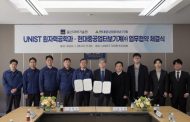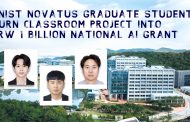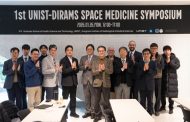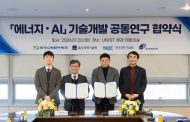《Editor’s Note: Japan’s export restrictions of key industrial materials has attracted considerable public attention on core display materials, parts, and manufacturing equipment. UNIST also took the lead in responding to this through the composition and operation of the technical advisory board, thus making great progress in related fields. From best paper awards to academic advancement award … here is a brief summary of those inspiring stories.》
■ Three UNIST Students Honored at the 2019 Samsung Electro-Mechanics Best Paper Award Ceremony
Three UNIST students have been recognized for research excellence at the ‘2019 Samsung Electro-Mechanics Best Paper Award’ Ceremony held at the Suwon Plant on November 18, 2019.
The Samsung Electro-Mechanics Best Paper Award, which has been in its 15th year since 2005, is awarded annually by the Samsung Electro-Mechanics to support creative and challenging research activities for talented scientists and to create a technology-oriented culture.
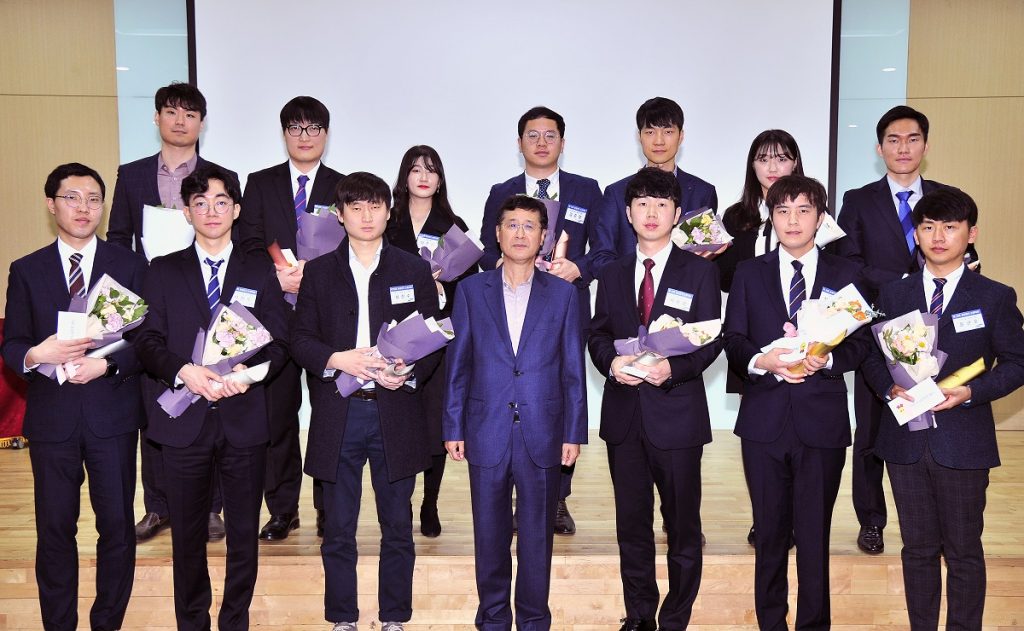
Three UNIST students won bronze prizes at the ‘2019 Samsung Electro-Mechanics Best Paper Award’. l Image Credit: Samsung Electro-Mechanics
This year, 287 papers were submitted in the following fields of material technology, device and process technology, radio frequency and software, base technology, and production technology, yet only 13 papers, including 2 gold awards, 4 silver awards, and 7 bronze prizes, were awarded. Included among them are Seong Wook Kim (Advisor: Professor Ji-Hyun Jang), JoonYoung Kim (Advisor: Professor Yoon-Kyoung Cho), and JuHyeon Lee (Advisor: Professor Wook Jo).
■ Professor Wook Jo Recognized for Academic Advancement
Professor Wook Jo in the School of Materials Science and Engineering at UNIST, has been recognized for academic advancement at the ‘2019 Fall Meeting of the Korean Ceramic Society’, held at COEX in Seoul from November 13 to 15, 2019.
Presented by the Korean Ceramic Society, this early career award is bestowed upon individuals whose research propels any discipline related to the field of ceramics. This year, both Professor Wook Jo (UNIST) and Professor Heesun Yang (Hongik University) received the award at Fall Meeting in recognition of unusually creative work by an early career scientist that advances scientific understanding of ceramics technology.
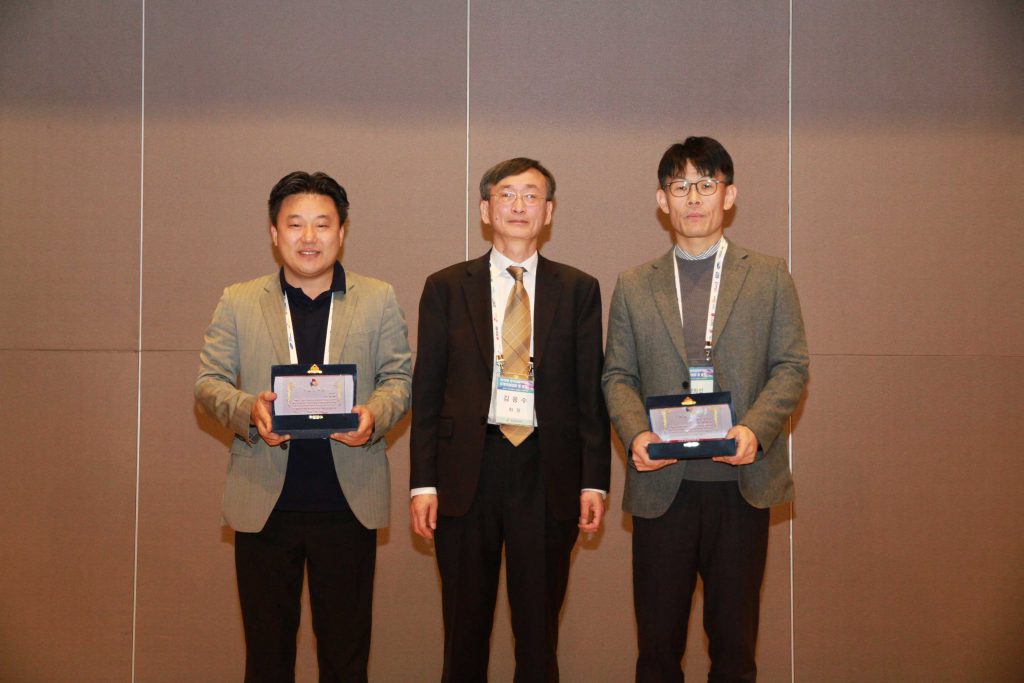
Professor Wook Jo won the Academic Advancement Award at the 2019 Fall Meeting of the Korean Ceramic Society. l Image Credit: Korean Ceramic Society
Professor Jo has been working on developing piezoelectric materials technology based on ferroelectricity. In particular, he gained recognition from researchers in the field by introducing a theory that characterizes the properties of lead-free piezoelectric materials and carrying out research to optimize the process. Professor Jo, who also serves as the Director for the Jülich-UNIST Joint Leading Institute in Advanced Energy Research (JULIA), has been carrying out various research on the convergence of rechargeable batteries and solar cells.


![[Short News] Recent Awards and Honors at UNIST](https://news.unist.ac.kr/wp-content/uploads/2019/11/Untitled-1-7-800x426-800x426.jpg)



